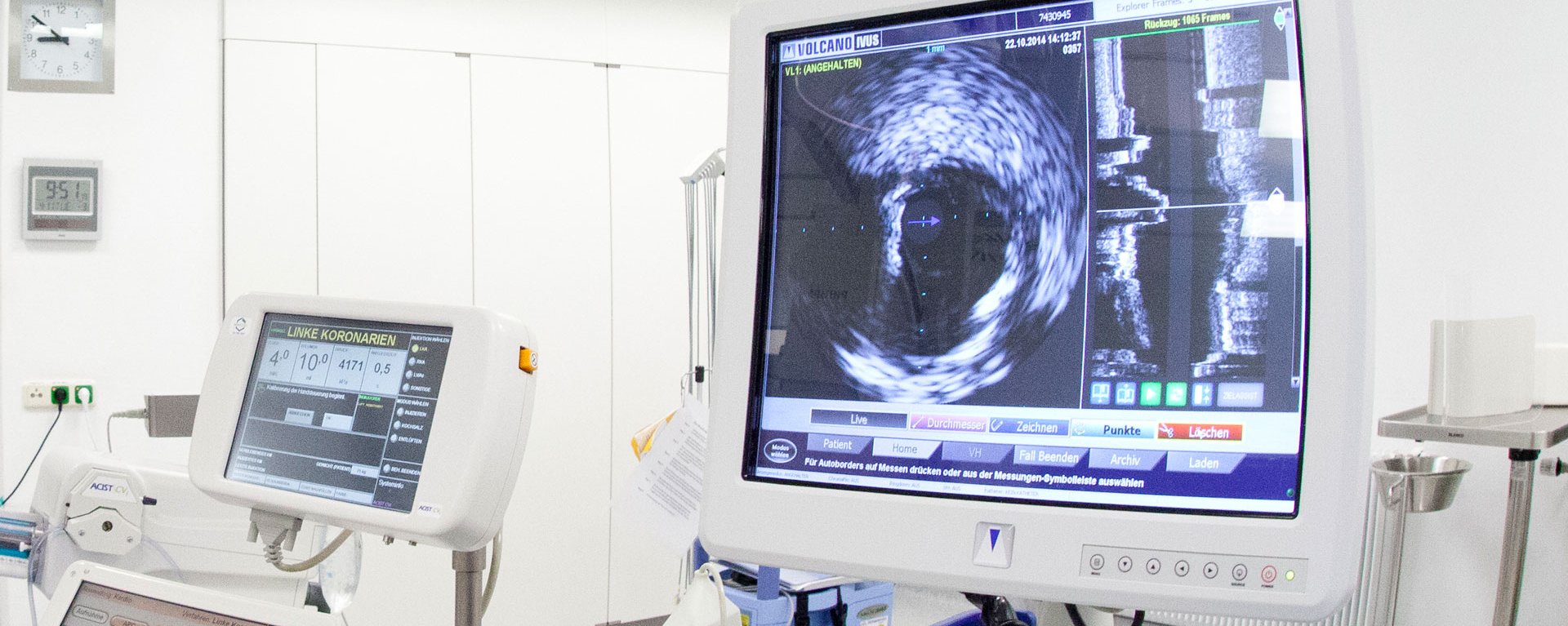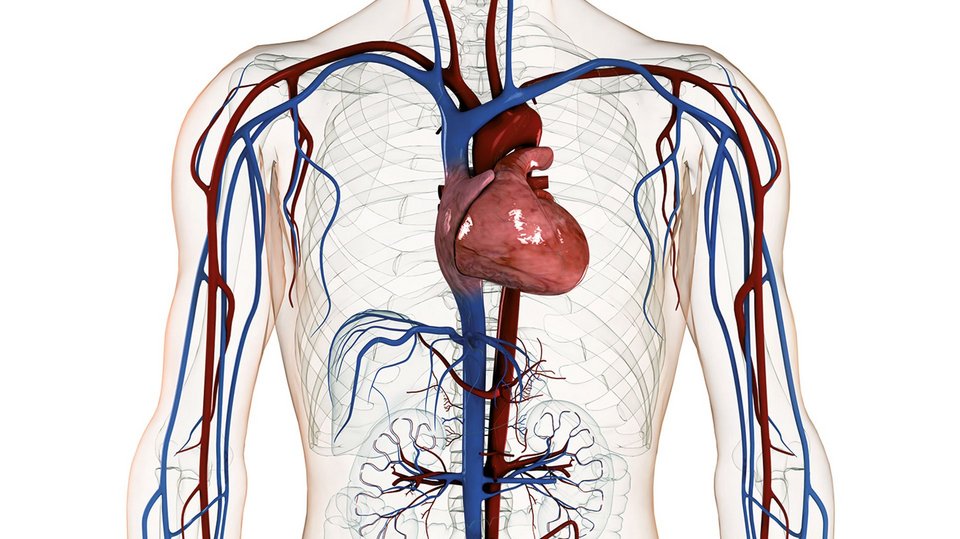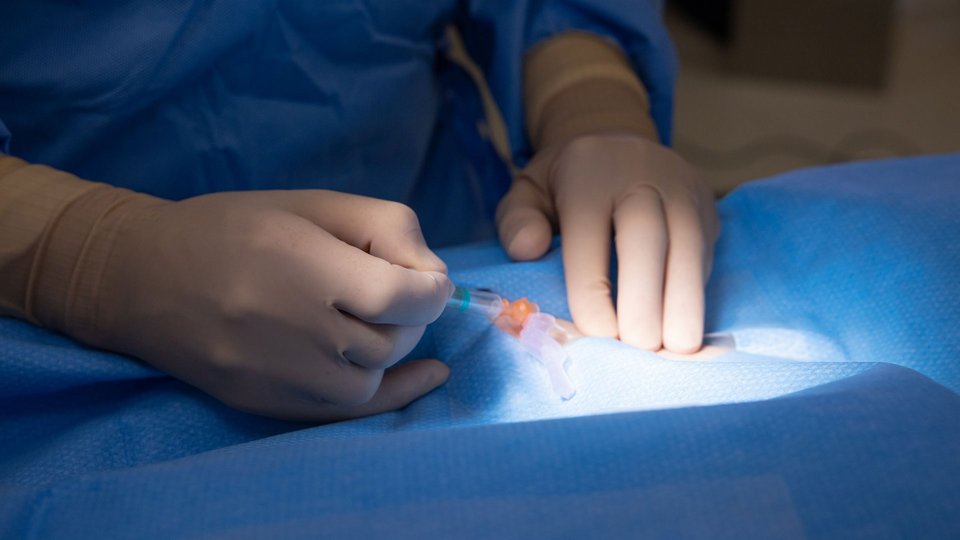Cardiac electrophysiology, which deals with the diagnosis and therapy of cardiac arrhythmia, is a special focus of the Cardiovascular Center.
At rest our heart normally beats at a regular sequence of 50 to 80 times per minute, i.e. around 100,000 times a day. Under physical or mental stress the heart rate can increase considerably in order to satisfy the higher oxygen requirement of our organs, in particular the muscles being exerted. This increase is regarded as “normal” as we have known this phenomenon for our whole lives. However, things are different if unanticipated irregular heartbeats occur, “skipped beats” are noticed or a sudden acceleration of the pulse occurs without a specific cause. Most people consider these situations to be unusual, and frequently also as threatening. This is particularly the case if the feeling of a racing heart is accompanied by dizziness or a severe feeling of weakness.
However, too slow a pulse also has a negative effect on our well-being and resilience. In this case people complain of feelings of dizziness through to impaired consciousness and also the feeling that the heart cannot “keep up” when under strain.
Both functional impairments as well as a racing heart (tachycardia) as well as too slow a heartbeat (bradycardia) usually require evaluation and treatment in order to prevent risks to the patient’s own life and that of others. However, the symptoms of arrhythmia alone say little about how dangerous it is, despite the fact that lasting symptoms, especially those linked to dizziness, shortness of breath or clouding of consciousness, should result in an immediate evaluation with admission to hospital by the emergency response doctor. Many cardiac arrhythmias, in particular recurrent racing of the heart lasting a few minutes to hours in young, otherwise healthy people, require evaluation even if these are not usually life-threatening and can be overcome using what are known as vagal maneuvres (such as compressions, drinking cold water etc.).
Phases of irregular pulse or short episodes of irregular heartbeat should also be taken seriously as these are often due to what is known as atrial fibrillation. This arrhythmia does not usually pose a direct risk to the heart (many people have ongoing atrial fibrillation). If blood-thinning medication is not taken, there is a risk of the formation of blood clots in the heart with the dangerous consequence of a stroke. Therefore, if this arrhythmia is identified, the patient’s physician, internal specialist or cardiologist should advise on and discuss the necessity of blood-thinning treatment.
Important
In all cases it is advisable for the arrhythmia to be documented via an ECG. This can be done in the nearest hospital or practice or, if the symptoms are occurring for the first time or are accompanied by weakness, dizziness, heart pain, by the emergency response doctor who should be alerted immediately.
In the Kempten-Oberallgäu hospitals patients with acute cases of arrhythmia can always be admitted to the emergency admission for internal medicine or, in less urgent cases, may be asked to attend an electrophysiological appointment to evaluate the necessity of an inpatient evaluation (direct registration for private patients, patients with statutory health insurance can be referred by their physician. LINK to the appointment if possible). A cardiologist is on hand in the Kempten and Immenstadt hospitals around the clock to interpret the ECG and define the treatment strategy for an arrhythmia.
If an inpatient evaluation is required in the view of your treating physician or cardiologist, or in our view, a specialist team of doctors and care staff is on hand at the Kempten hospital headed by head physician Associate Professor Dr. med. Martin R. Karch. In order to perform what are known as electrophysiological investigations and catheter ablation treatments (see below), a cardiac catheterization laboratory with state-of-the-art technology was set up in the Memmingerstrasse hospital.



![[Bitte in "english" übersetzen:] [Bitte in "english" übersetzen:]](/fileadmin/_processed_/3/6/csm_Herz-Gefaesszentrum_Kliniken_b881e41a9d.jpg)
